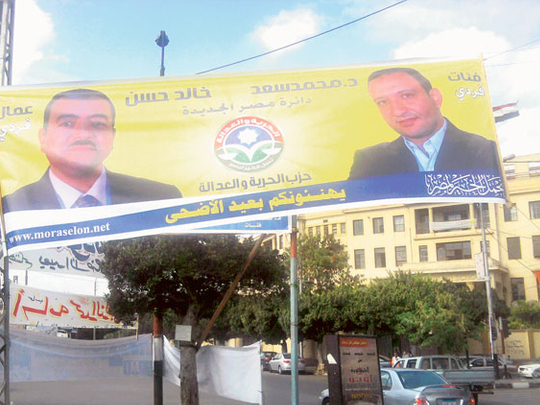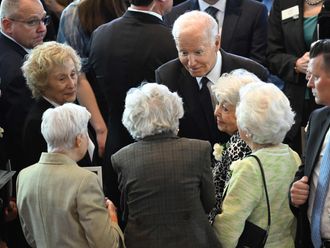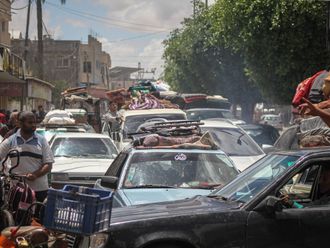
Cairo: Inside a mosque in the populous eastern Cairo area of Al Matariya, a Muslim preacher recently told his audience: "Beware of the so-called liberalism and secularism and their advocates. They are against the Sharia [Islamic law]."
The man, who sports a long beard, is a noted cleric in Egypt's Salafists or ultra-conservative Muslims who have emerged as a strong group after Hosni Mubarak was toppled in February.
"So don't give them your votes lest you should incur God's wrath," the preacher continued.
In theory, using mosques in this predominantly Muslim country to campaign for parliamentary elections is banned. However, the ban has largely ignored as Egypt prepares to go to the polls on November 28, the first since Mubarak was forced from power.
The three-round elections mainly pit liberals against Islamists. Many of them are calling for the creation of an Islamic state in Egypt, observers say.
A few days after Mubarak's toppling, the Muslim Brotherhood was legalised after a decades-long official ban. The 83-year-old group has also been allowed to set up the Freedom and Justice Party, its first-ever political party.
"Our party is a fruit of the January 25 [anti-Mubarak] revolution," Sa'ad Al Katatni, a senior Freedom and Justice Party official, said.
"Its programme focuses on introducing political and social reforms, and reviving Egypt's regional role," he told Gulf News.
Freedom of religion
He is keen to stress that though the party has Islamic terms of reference, it advocates the freedom of all Egyptians, regardless of their religious background.
According to him, his party does not restrict the engagement of Christians and women in post-Mubarak Egypt.
"There are several Coptic and women candidates on our tickets."
The Muslim Brotherhood has said it eyes more than 40 per cent of the new parliament's seats. The parliament will be tasked with drafting a constitution
Over the last nine months, Egyptian authorities have legalised Salafist parties for the first time. Public calls by some Salafists for the creation of a purely Islamic state have triggered fears among the country's Christian minority and prompted liberals to join forces ahead of the upcoming elections.
"We are looking forward to a parliament that will lay down the foundation for a modern state in Egypt," said Hafez Abu Saeed, a human rights advocate, who is running in elections for the first time.
Since Mubarak's toppling, 10 liberal parties have emerged, notably the Liberal Egyptians, co-founded by Christian business tycoon Najuib Sawiris.
This party advocates the establishment of a civil state in Egypt based on freedom of beliefs, equal citizenship and social justice.
With some Islamists dubbing the Liberal Egyptians as a Coptic party, senior officials in the party were quick to declare that they espouse an article in Egypt's current constitution stating that Islam is the country's official religion and that the Sharia is its main source of legislation. This article is widely expected to be kept in the new constitution.
"I think the new parliament will not truly represent the revolution," said Abdul Aziz Al Hussaini, a political analyst.
"More than 50 per cent of its members will be from the Islamists and politicians from Mubarak's now-disbanded National Democratic Party," he added at a recent seminar in Cairo.
On Monday, the Supreme Administrative Court overturned an earlier ruling by a provincial court barring NDP members from contesting the elections.












